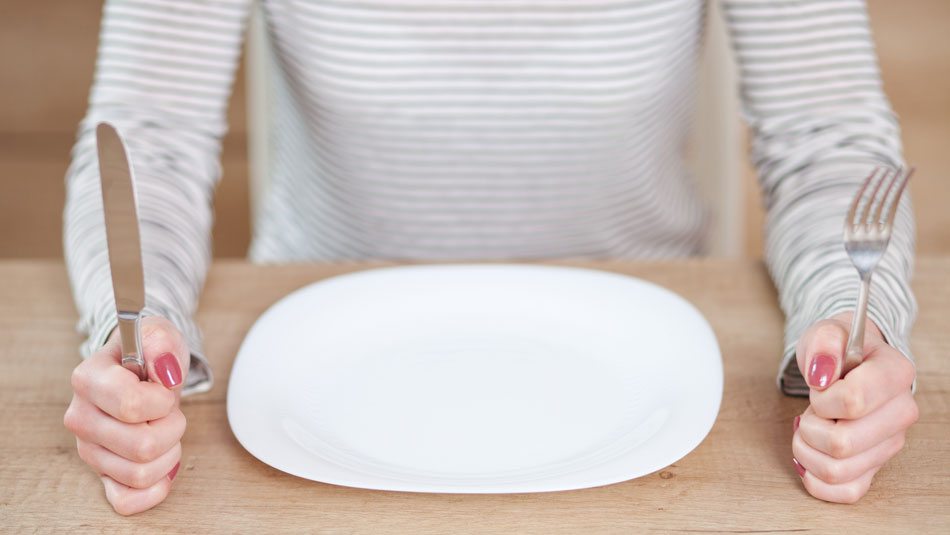I don't want to lie to you, I'd rather start this off with a moment of complete honesty. So... Hello, my name is Lindsay and I'm a foodie, but I've also tried all the diets. It's true — when I hear about the latest and greatest weight loss fads, I go for it. I've juice cleansed; gone low-carb and no-carb; cut out all allergens from my diet for weeks only to add them back in one at a time; and, in college, I even did that cabbage soup thing. It's important for you to know this because it sets the framework for why I wanted to try intermittent fasting.
Videos by Wide Open Country
As soon as I read about it, I knew I had to give it a go. It just sounded too good to be true! The article claimed that fasting works the same way as low-carb/no-carb diets but it doesn't have any (and I mean any) ingredient restrictions. Eat everything you would normally eat, just fast in between.
I was skeptical, but I wanted to give it a try. Two weeks later, I'm here to report that something kind of magical happened while I was intermittent fasting.
What Is Intermittent Fasting?
Intermittent fasting (IF) is an eating pattern where you cycle between a fasting period and an eating period in a certain time frame. It's not really a diet, actually, because it doesn't say which foods you can and cannot eat. Rather, it's a schedule that says when you should and shouldn't eat. Here's how it works.
While you sleep, you're "fasting." Since you're not eating for about eight hours, your body goes into a fasting state. With IF, you simply extend that period of time for an additional six to eight hours. This keeps your body in a fasting state for 12 to 24 hours, depending on the type of IF cycle you're working with.
Entering Ketosis
https://www.instagram.com/p/Bei7aH-AcMC/?tagged=intermittentfasting
Why is it important to put your body into fasting state? Because you'll burn fat at a rapid pace as compared to a fed state. In the fed state, your insulin levels are too high for your body to begin fat burning. It's using the calorie intake from the food you just ate to fuel your cells. But, 8 to 12 hours after your last meal, your body enters fasting state and can burn body fat that it simply didn't have access to during fed state. This is called ketosis, and it's the entire purpose behind the Ketogenic and other no-carb diets.
On IF, entering ketosis means you can experience fat loss without making any changes to your diet, eating plan, or exercise level. In addition to that, while the schedule is not specifically designed for calorie restriction, many people on IF do eat less. This is simply because it's hard to cram so many calories into a six-hour eating time frame! Instead of eating fewer calories, I found myself getting much fuller, faster, when eating on the IF schedule. Because of that, I actually counted calories to make sure I got enough in the day.
How Do You Do It?
There are a few different methods, so if you're interested in giving it a try start with the method that sounds like it will be easy for you to pull off.
Daily Intermittent Fasting
I recommend this eating schedule method as a starting point for those interested in trying IF. The Leangains method allows you to eat for 8 hours and fast for 16. In the beginning, I started with 12 hour fasts and worked my way up to 16. 18 hours is the recommended maximum fasting time for this method.
I found this plan really easy to follow with its loose eating window. I would eat lunch between noon and 2pm to break my fast, and I could still meet up with friends for happy hour and eat dinner with my husband like normal. Then, I would stop eating at 8pm and wait until noon the next day to break my fast.
This method was easy to fit into my regular schedule and it also didn't interfere with my social life - a real bonus!
Weekly Intermittent Fasting
Now that I know that I can pull it off, I might build some weekly intermittent fasting into my schedule. These are basically 24-hour fasts, where your last meal would be by noon on Monday and your next meal noon on Tuesday. All you would need to do is skip one extra meal (dinner) if you're used to the daily fasting routine.
I might use this type of fasting if I have a week where I can't do the daily fasts. If I went on vacation or on a work trip, I could do this weekly IF before or after my trip. This is also a great option for those who want the health benefits of IF without the caloric deficit. If you're trying to bulk up or put on weight, this may be the best option for you.
Alternate Day Fasting
This method incorporates longer fasts more frequently, with multiple 24-hour fasts in a week on nonconsecutive days. This is a popular option for research studies, but personally, I can't see myself following this pattern.
It seems too complicated to me to keep up with and I would struggle with so many missed meals. I do love me some food!
It's Not All About Losing Weight
https://www.instagram.com/p/BeimqtonLDj/
While I did lose weight during my IF stint, the main point of the schedule actually isn't about weight loss at all. The main reason most people start intermittent fasting is because of the added health benefits. Studies have shown that it actually helps you live longer and may help reduce the risk of cancer, cardiovascular disease, chronic diseases, and Alzheimer's disease.
In addition to increasing your lifespan and maybe losing weight, I thought the most magical thing about IF was the schedule. This schedule of eating was actually super convenient! I found myself really energized in the morning...after the first few days, of course. On the first few days, all I could think about were my hunger pangs. I was actually pretty distracted by my inner monologue that kept chanting "food, food, food, FOOD!"
After I got used to the time frame of the fasted state (which only took two days), I stopped thinking about food when I was fasting. I became super focused and productive, and my workouts felt really charged and I got a lot more out of them.
In the end, I asked myself the same question I do with all diet trials: is it worth doing for a longer period of time? I definitely think this one is a resounding yes! Actually, I don't think I'm going to stop anytime soon. I'm not sure if I'll do it long-term yet, I'll need to play that by ear. On weeks where it seems to make sense, sure. But on vacations or weeks where I get invited out to lunch or dinner, I probably won't let my schedule get in the way of my social life.
What do you think, is IF something you could try?
*Before you try any new diet or workout plan, we recommend that you check in with your doctor. Only you and your doctor can make the assessment whether a diet or workout plan is a healthy move for you and your body type. Intermittent fasting is not recommended for anyone who has a history of disordered eating (such as anorexia or bulimia), struggles with sleeping disorders, those under chronic stress, or women who are pregnant or nursing.







